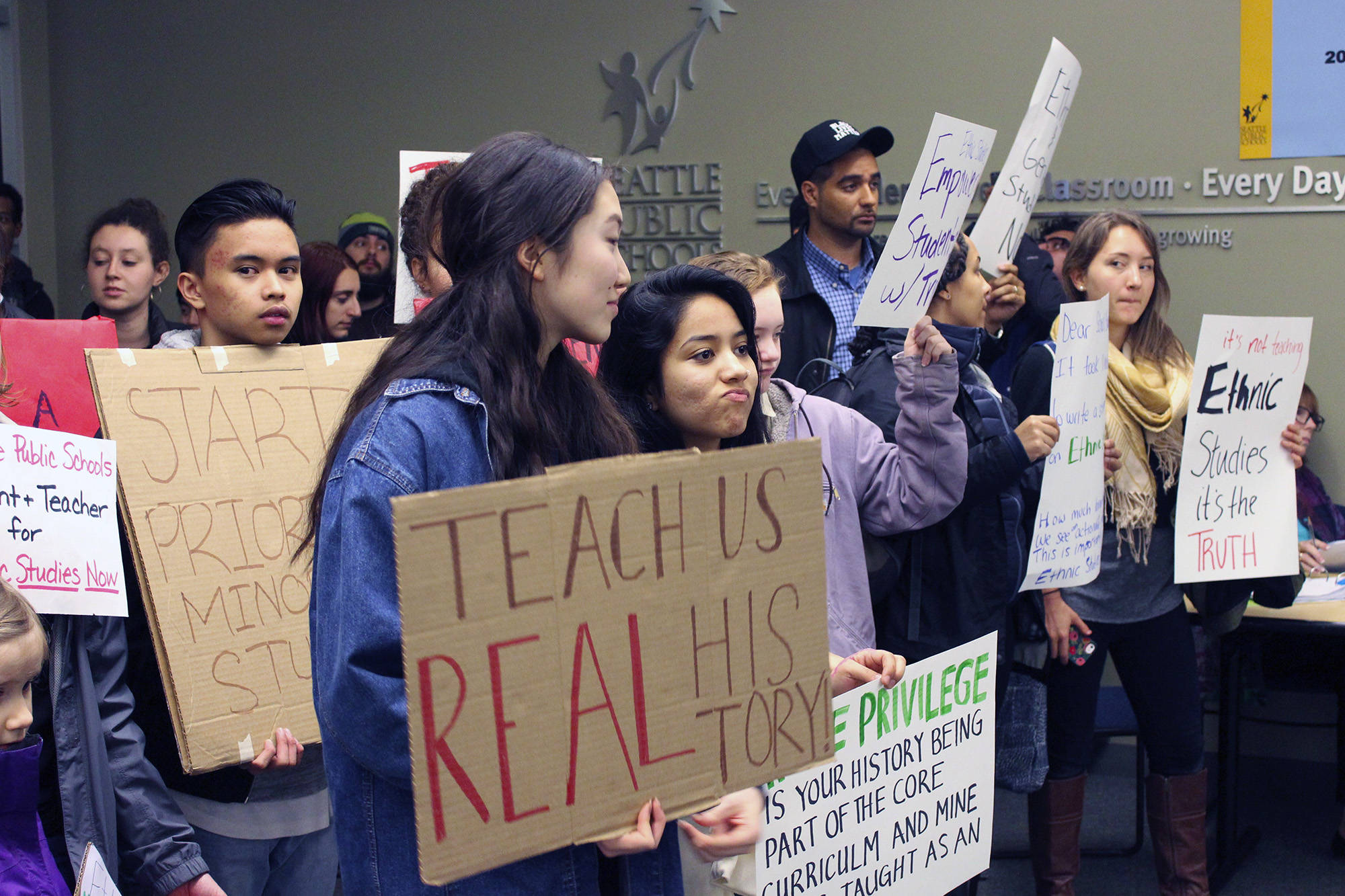Following months of public pressure, the Seattle School Board on Wednesday officially introduced a resolution supporting ethnic studies in Seattle schools — an effort to rework the district’s curriculum so that every class reflects nonwhite cultures and perspectives (or, as teacher Tracy Gill puts it, “reversing [the idea of] white as the default race”).
The Seattle/King County NAACP launched the idea on Martin Luther King Jr. Day, and it has since garnered the support of teachers, organizations, social justice advocates, and local candidates; it’s been endorsed by a slew of groups and individuals including Macklemore and Seattle Seahawks star Michael Bennett. In March, teachers and students pressed the issue at a School Board meeting, and board members were moved.
“Your stories and your experiences and your advocacy are profound and deeply touching,” Vice President Leslie Harris said at the time. “I hope we can follow through and honor that.”
On July 5, they just might, when the board votes on the resolution. Although still vague, the board’s version, like the NAACP’s, cites several recent studies supporting the idea that an ethnic studies curriculum can help improve attendance and achievement for all students—as well as help close the achievement gap between white students and students of color. The resolution would create a task force and a work group to help develop the new facets of the curriculum. It would also direct the district to hire an outside consultant to “help facilitate the harmonious participation of all stakeholders” in the process. A consultant is needed, the resolution says, “because of the current tension around ethnic studies and deep need to build trust and accord among teachers, community members and the District.” (Gill has said that she’s personally received pushback from white parents who have perceived her focus on nonwhite perspectives and difficult discussions about race as “teaching hate in the classroom.”)
Board members seem to be committed now, though. The question, naturally, is money, and what it will actually mean when the rubber hits the road. The resolution acknowledges that the district is under “severe budget constraints” and thus simply “encourages staff to make every effort to improve and expand ethnic studies” in the meantime. It identifies $88,000, however, left over from underspending during the 2015-2016 school year, to support the work group and task force and consultancy work through the end of the summer. The idea at this point is to get a firm, working definition of what “ethnic studies” will mean for Seattle schools; how much of this kind of work is already going on in the district; and what needs particular improvement. It will start with high school and then move on to the lower grades.
In the meantime, supporters—including many students—packed Wednesday’s meeting with signs and enthusiasm; it was standing room only and more attendees spilled out into the hallway. One Ballard High School sophomore, who was white, told the room that “at Ballard, we have wonderful history classes. But I think there’s something missing. We don’t learn any history that’s from a perspective that’s different from my own.”
Although the official vote on the resolution won’t happen until next week, school board members assured the room of their commitment—there is “really thoughtful work” already going on, said board member Rick Burke, “and I’m super excited to see it progress”—as well as some hesitation about their ability to follow through.
“I’ll finish up with: I’m in favor of this, wholeheartedly,” said Harris. “I am, however, skeptical that we have the money and the bandwidth presently to do this correctly and robustly, and I think we’re going to have to be darn creative” in order to make it work. She pointed to the fact that the 2015 state statute-mandated tribal sovereignty curriculum, Since Time Immemorial, has still not been fully implemented across the district. “I’m not interested in making a statement without having extraordinarily robust follow-up. And it’s my hope that this becomes a permanent committee with very thoughtful engagement, because this is one of those places we can make a heck of a difference.”
sbernard@seattleweekly.com








